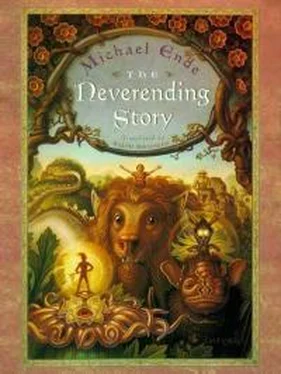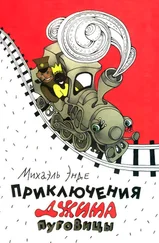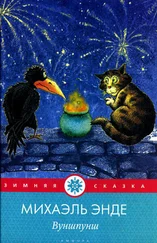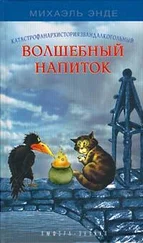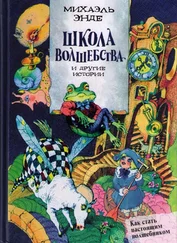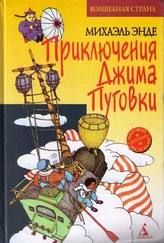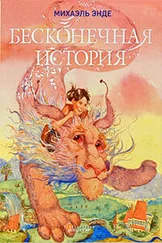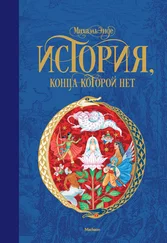Михаэль Энде - The Neverending Story
Здесь есть возможность читать онлайн «Михаэль Энде - The Neverending Story» весь текст электронной книги совершенно бесплатно (целиком полную версию без сокращений). В некоторых случаях можно слушать аудио, скачать через торрент в формате fb2 и присутствует краткое содержание. Год выпуска: 1997, ISBN: 1997, Издательство: Dutton Children's Books, Жанр: Детская проза, fairy_fantasy, на английском языке. Описание произведения, (предисловие) а так же отзывы посетителей доступны на портале библиотеки ЛибКат.
- Название:The Neverending Story
- Автор:
- Издательство:Dutton Children's Books
- Жанр:
- Год:1997
- ISBN:9780525457589
- Рейтинг книги:3 / 5. Голосов: 1
-
Избранное:Добавить в избранное
- Отзывы:
-
Ваша оценка:
- 60
- 1
- 2
- 3
- 4
- 5
The Neverending Story: краткое содержание, описание и аннотация
Предлагаем к чтению аннотацию, описание, краткое содержание или предисловие (зависит от того, что написал сам автор книги «The Neverending Story»). Если вы не нашли необходимую информацию о книге — напишите в комментариях, мы постараемся отыскать её.
The Neverending Story — читать онлайн бесплатно полную книгу (весь текст) целиком
Ниже представлен текст книги, разбитый по страницам. Система сохранения места последней прочитанной страницы, позволяет с удобством читать онлайн бесплатно книгу «The Neverending Story», без необходимости каждый раз заново искать на чём Вы остановились. Поставьте закладку, и сможете в любой момент перейти на страницу, на которой закончили чтение.
Интервал:
Закладка:
“You want us to go to her empty-handed?”
“I wouldn’t call it that, Atreyu. What was your mission?”
“To discover the cause of her illness and find out what would cure it.”
“But,” said Falkor, “nothing was said about your bringing her the cure.”
“What do you mean?”
“Maybe it’s a mistake, trying to cross the border of Fantastica in search of a human.”
“I don’t see what you’re driving at, Falkor. Explain yourself.”
“The Childlike Empress is deathly sick,” said the dragon, “because she needs a new name. Morla the Aged One told you that. But only a human, only a child of man from the Outer World can give her this name. Uyulala told you that. So you’ve actually completed your mission. It seems to me you should let the Childlike Empress know it as soon as possible.”
“But it won’t do her a bit of good,” Atreyu protested, “unless I bring her the human who can save her.”
“Don’t be so sure,” said Falkor. “She has much greater power than you or I. Maybe she would have no difficulty in bringing a human to Fantastica. Maybe she has ways that are unknown to you and me and everyone else in Fantastica. But to do so she needs to know what you have found out. If that’s the way it is, there’s no point in our trying to find a human on our own. She might even die while we’re looking. But maybe if we turn back in time, we can save her.”
Atreyu made no answer. The dragon could be right, he reflected. But then he could be wrong. If he went back now with his message, the Childlike Empress might very well say: What good does that do me? And now it’s too late to send you out again.
He didn’t know what to do. And he was tired, much too tired to decide anything.
“You know, Falkor,” he said, hardly above a whisper, “you may be right. Or you may be wrong. Let’s fly on a little further. Then if we haven’t come to a border, we’ll turn back.”
“What do you mean by a little further?” the dragon asked.
“A few hours,” Atreyu murmured. “Oh well, just one hour.”
“All right,” said Falkor, “just one hour.”
But that one hour was one hour too many.
They hadn’t noticed that the sky in the north was black with clouds. In the west the sky was aflame, and ugly-looking clouds hung down over the horizon like seaweed.
In the east a storm was rising like a blanket of gray lead, and all around it there were tatters of cloud that looked like blue ink blots. And from the south came a sulfur-yellow mist, streaked with lightning.
“We seem to be getting into bad weather,” said Falkor.
Atreyu looked in all directions.
“Yes,” he said. “It looks bad. But what can we do but fly on?”
“It would be more sensible,” said Falkor, “to look for shelter. If this is what I think, it’s no joke.”
“What do you think?” Atreyu asked.
“I think it’s the four Wind Giants, starting one of their battles. They’re almost always fighting to see which is the strongest and should rule over the others. To them it’s a sort of game, because they have nothing to fear. But God help anyone who gets caught in their little tiffs.”
“Can’t you fly higher?” Atreyu asked.
“Beyond their reach, you mean? No, I can’t fly that high. And as far as I can see, there’s nothing but water below us. Some enormous ocean. I don’t see any place to hide in.”
“Then,” said Atreyu, “we’ll just have to wait till they get here. Anyway, there’s something I want to ask them.”
“What?!” cried the dragon, so terrified that he jumped, in a manner of speaking, sky-high.
“If they are the four Wind Giants,” Atreyu explained, “they must know all four corners of Fantastica. If anyone can tell us where the borders are, it’s them.”
“Good Lord!” cried the dragon. “You think you can just stop and chat with Wind Giants?”
“What are their names?” Atreyu asked.
“The one from the north,” said Falkor, “is called Lirr, the one from the east is Baureo, the one from the south is Sheerek, and the one from the west is Mayestril. But tell me, Atreyu. What are you? Are you a little boy or a bar of iron? How come you’re not afraid?”
“When I passed through the sphinxes’ gate,” Atreyu replied, “I lost all my fear. And besides, I’m wearing the emblem of the Childlike Empress. Everyone in Fantastica respects it. Why shouldn’t the Wind Giants?”
“Oh, they will,” cried Falkor, “they will. But they’re stupid, and nothing can make them stop fighting one another. You’ll see.”
Meanwhile the storm clouds from all four directions had converged. It seemed to Atreyu that he was at the center of a huge funnel, which was revolving faster and faster, mixing the sulfur-yellow, the leaden gray, the blood-red, and the deep black all together.
He and his white dragon were spun about in a circle like a matchstick in a great whirlpool. And then he saw the Wind Giants.
Actually all he saw was faces, because their limbs kept changing in every possible way—from long to short, from clear-cut to misty—and they were so knotted together in a monstrous free-for-all that it was impossible to make out their real shapes, or even how many of them there were. The faces too were constantly changing; now they were round and puffed, now stretched from top to bottom or from side to side. But at all times they could be told apart. They opened their mouths and bellowed and roared and howled and laughed at one another. They didn’t even seem to notice the dragon and his rider, who were gnats in comparison to the Wind Giants.
Atreyu raised himself as high as he could. With his right hand he reached for the golden amulet on his chest and shouted at the top of his lungs: “In the name of the Childlike Empress, be still and listen.”
And the unbelievable happened!
As though suddenly stricken dumb, they fell silent. Their mouths closed, and eight gigantic goggle-eyes were directed at AURYN. The tempest stopped and the air was deathly still.
“Answer me!” cried Atreyu. “Where are the borders of Fantastica? Do you know, Lirr?”
“Not in the north,” said the black cloud face.
“And you, Baureo?”
“Not in the east,” said the leaden-gray cloud face.
“You tell me, Sheerek!”
“There is no border in the south,” said the sulfur-yellow cloud face.
“Mayestril, do you know?”
“No border in the west,” said the fiery-red cloud face.
And then they all spoke as with one mouth: “Who are you, who bear the emblem of the Childlike Empress and don’t know that Fantastica has no borders?”
Atreyu made no reply. He was stunned. It had never occurred to him that Fantastica might have no borders whatsoever. Then his whole Quest had been for nothing.
He hardly noticed it when the Wind Giants resumed their war game. He had given up caring what would happen to him. He clung fast to the dragon’s mane when they were hurled upward by a whirlwind. The lightning played around them, they were spun in a circle and almost drowned in a downpour of rain. They were sucked into a fiery wind that nearly burned them up, but a moment later a hailstorm, consisting not of stones but of icicles as long as spears, flung them downward. So it went: up and down, down and up, this way and that. The Wind Giants were fighting for power.
A gust of wind turned Falkor over on his back. “Hold tight!” he shouted.
But it was too late. Atreyu had lost his hold and fell. He fell and fell, and then he lost consciousness.
When he came to, Atreyu was lying on white sand. He heard the sound of waves, and when he looked around he saw that he had been washed up on a beach. It was a gray, foggy day, but there was no wind. The sea was calm and there was no sign that the Wind Giants had been fighting a battle only a short time before. The beach was flat and there were no hills or rocks in sight, only a few gnarled and crooked trees which, seen through the mist, looked like great clawed hands.
Читать дальшеИнтервал:
Закладка:
Похожие книги на «The Neverending Story»
Представляем Вашему вниманию похожие книги на «The Neverending Story» списком для выбора. Мы отобрали схожую по названию и смыслу литературу в надежде предоставить читателям больше вариантов отыскать новые, интересные, ещё непрочитанные произведения.
Обсуждение, отзывы о книге «The Neverending Story» и просто собственные мнения читателей. Оставьте ваши комментарии, напишите, что Вы думаете о произведении, его смысле или главных героях. Укажите что конкретно понравилось, а что нет, и почему Вы так считаете.
